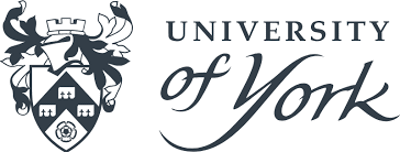Fellowship Fortnight
Fellowship Fortnight (FF) was introduced in 2021 with
the aim of celebrating the work of research fellows at the University of York,
and encouraging researchers and staff to learn more about early career
fellowships. Now an annual event, FF2023 welcomed more than 300 attendees from
across the University, from PhD researchers to current Fellows to research
support staff. 97.5% of attendees said that they would recommend the event that
they attended to others. Working in conjunction with Departments across the
University, Fellowship Fortnight is an excellent example of how researchers and
staff across the University can come together to celebrate, collaborate and
support professional development among early career researchers.

What kind of an organisation are you in the context of the Concordat?
A research-intensive university with approximately 800 early career researchers and 100 Research Fellows. York has held the HR Excellence in Research Award since 2010.
What challenge were you trying to address with this initiative?
Early career fellowships are incredibly competitive yet also a great opportunity for researchers to engage in professional and career development as well as research. However, there is often a lack of understanding about what fellowships offer, how they differ from other kinds of funding, and how to write a competitive proposal.
Following the establishment of the York Fellowship Programme in 2019, Fellowship Fortnight offered an opportunity to:
- Celebrate the University’s existing cohort of early career Fellows
- Address the lack of knowledge about fellowships among ECRs
- Share best practice between Departments, and thus avoid duplication of knowledge and effort.
What did you do and how does this align with the Principles and keywords you have selected below?
Since 2021, the University of York has organised and run Fellowship Fortnight for 2 weeks in late May and early June. Delivered by the Fellowship Coordinator in collaboration with York’s 19 discipline-specific early career researcher forums, Fellowship Fortnight is aimed at 3 audiences:
- Those who currently hold a Fellowship (the York Fellowship Community)
- Those considering applying for a Fellowship (prospective Fellows, usually PhDs or postdocs)
- Those who support Fellows and prospective Fellows (research support staff and senior academics)
The events at Fellowship Fortnight reflect these varied audiences. 2023 events included:
- Workshops and talks for prospective fellows, including our flagship intensive development programme, Preparing for Fellowship Success (PfFS) and drop-in writing/surgery sessions.
- Professional development and career development activities - including narrative CVs, leadership and policy engagement
- Fellowship community social events and research culture cafes
- Best practice events for academic and professional services staff who support and ‘sponsor’ current and prospective Fellows.
Preparing for Fellowship Success (PfFS), which runs over 3 half days, is a major part of the fortnight. This development programme, aimed at both internal and external researchers, hosts ~30 applicants a year. Developed around the '3 Ps' of Fellowships (Person, Project, Place), it supports applicants to begin preparing a Fellowship application in preparation for submission within the next 12 months.
The 2023 calendar of events included collaborations with early career forums, interdisciplinary research centres, and The York Policy Engine, all of whom contributed to a very successful fortnight of events. The format of events varied: there is still a preference for online-only events, but some of our sessions were run in-person (particularly social events for Fellows), and we used the opportunity to trial hybrid events for the first time.
What were the challenges in implementation and how did you resolve them?
The major challenge in delivering Fellowship Fortnight is workload. FF involves a great deal of work by the Fellowship Coordinator and, learning from previous years, preparations for FF2023 began more than 3 months in advance. Starting so far in advance appeared to work well. Another challenge is appropriately advertising the Fortnight - at first glance, fellowships are a niche subject and may not attract much attention. We used social media, internal channels and word of mouth to advertise events, including a Twitter thread maintained in the weeks leading up to FF. Again, this appeared to work well, as attendance in 2023 was the highest it has ever been.
How did you evaluate the impact of your initiative?
Each year, we keep track of attendance numbers, and use feedback forms to evaluate the success and impact of Fellowship Fortnight. This information is reviewed by the Fellowship Coordinator, and analysed for a report which is then presented to York’s Fellowship Coordination Committee.
In 2023, attendance was the highest it has ever been, at 339 attendees. The most popular sessions were:
- Introducing the narrative CV, or Resumé for Researchers (70 attendees)
- Information session and Q&A: What is an (early-career) Fellowship? (56 attendees)
- How to write the worst Fellowship application ever (46 attendees)
97.5% of attendees said that they would recommend the event that they attended to others, and 98.5% of attendees said that their understanding of the topic/s covered within the session had improved or significantly improved.
Were there any surprising or unexpected consequences?
Despite the niche subject, Fellowship Fortnight saw a
large increase in interest in 2023. This was not just during the event itself;
there has been a major increase in engagement with Fellowship support in the
months since. Both prospective applicants and Departments engaged in greater
numbers with the Fellowship Programme, leading to an increase in Departmental
Fellowship-related events, and an increase in 1:1 support provided to
prospective Fellows. FF has helped to increase the visibility of fellowships and
of the York Fellowship Programme, too.
What advice would you give others wanting to do this?
Prepare well in advance - it takes time and effort to
develop, organise and run a series of events such as this. Getting other
Departments, Centres and researchers involved also helps to make the event
truly representative, ensuring that the events provided meet the needs of the
University community.
Beneficiaries: Research staff Managers of researchers
Stakeholders: Researchers Managers of researchers
Concordat principles: Professional and career development
Keywords: Training Professional development
